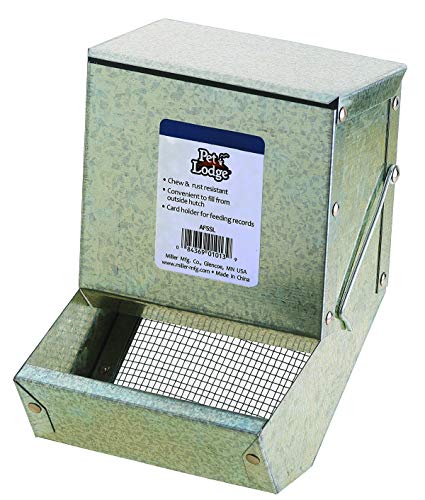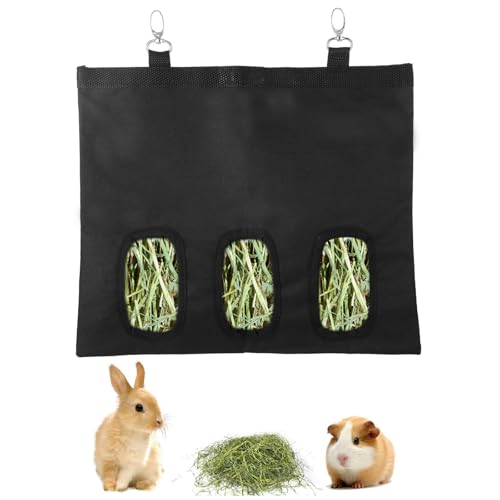If you have access to willow, poplar, elm, sycamore, apple or pear, they may be better choices. See the Safe Plants list for botanical names if you are in doubt about which ones.
You are using an out of date browser. It may not display this or other websites correctly.
You should upgrade or use an alternative browser.
You should upgrade or use an alternative browser.
Questions and comments about plant safety for rabbits.
- Thread starter MaggieJ
- Start date

Help Support Rabbit Talk Forum:
This site may earn a commission from merchant affiliate
links, including eBay, Amazon, and others.
thought I'd take this opportunity to mention that I started feeding some of the Chinese Elm (Ulmus parvifolia) we have all over the place here (big things, grow fast, considered trash trees around here). The rabbits like them, although not as well as some of the others. Works well for winter branches, tho. I don't mind cutting down a branch of a chinese elm. It's kind of like cutting a dandelion leaf..you KNOW there will be more tomorrow.
hoodat
Well-known member
Elm is very good. Wild rabbits browse on it all the time. In the Spring I eat the new shoots myself. Just strip them and eat them raw. The Chinese around here use them in stir fries.
Frosted Rabbits
Well-known member
Anntann":2j2bhlx1 said:What about duckweed? Anyone know about that aquatic plant? it's invasive, but HIGH in protein (50%) so I was thinking about a simple manmade pond to harvest it.....
Ducks can eat it nicely, if that's a help.
If you dry the duckweed, the protein level bumps up to over 90% 'Lemna Minor' is the scientific name. Lemna Trisulcus, the ivy leafed duckweed, and Lemna Major, giant duckweed, are also very high protein.
Spatterdock-- or swamp potato, cow lily, etc-- the tubers are very edible for people, just hard as heck to harvest.
You can grow and feed all sorts of floating aquatic plants for water fowl. Water lettuce, Salvinia M & Frogbit all grow far faster, easy and bigger than duckweed, also less dangerous for wild ponds. I've even given my ducks Pennywort and some Wisteria, both submerged growth.
OneAcreFarm
Well-known member
What about Trifolium dubium? Small hop clover....

$12.39
$24.00
Top Secret Restaurant Recipes: Creating Kitchen Clones from America's Favorite Restaurant Chains: A Cookbook
Essentialsmerchant

$19.99
$27.99
The Fast Metabolism Diet Cookbook: Eat Even More Food and Lose Even More Weight
Amazon.com

$9.99 ($3.33 / Count)
Springtime 3pcs Rabbit Fur Headbands for Women Girls Unique Faux Furry Hair Headband Soft Luxury Headwear Warm Hair Accessories
Chunxia Accessories

$9.99
The Lodge Cast Iron Cookbook: A Treasury of Timeless, Delicious Recipes
Amazon.com Services LLC

$25.41
$34.95
The Autoimmune Paleo Cookbook: An Allergen-Free Approach to Managing Chronic Illness (US Version)
Amazon.com

$14.40
$29.99
Fit Men Cook: 100+ Meal Prep Recipes for Men and Women―Always #HealthyAF, Never Boring
SKIES LLC

$9.99
$19.95
The Paleo Diet Cookbook: More Than 150 Recipes for Paleo Breakfasts, Lunches, Dinners, Snacks, and Beverages
Kuleli Books

$16.99
Pet Lodge® Steel Small Animal Feeder with Lid and Sifter Bottom | Cage Rabbit Feeder | Holds Several Days Worth of Food | 5 Inch
Duncan's Family Farm Store

$51.99 ($26.00 / Count)
$57.99 ($29.00 / Count)
Qinyoung 2 Pcs 5 Pound Cage Rabbit Feeders Automatic Metal Trough Feeder with Lid Galvanized Steel Bunny Food Dispenser for Rabbits Chicken Guinea Pigs Ferrets and Other Small Animals
HouKonng
The small hop clover is sited as being important forage for deer and other herbivores, (as well as cattle), but it is susceptible to a mold that is highly toxic. Also, the sheep sites say to keep off the hop clover during breeding season..it appears that there is a link to poor fertility.scpankow":1kj6ds11 said:What about Trifolium dubium? Small hop clover....
Maggie will know more about it
Sorry, this time Maggie does not know more about it.
Clovers are valuable forage plants but they do have some issues.
http://www.library.illinois.edu/vex/tox ... alsike.htm
I would think that these problems would also apply to Trifolium dubium. There is remarkably little specific information available. Many good "weed" sites and books do not even mention it.
Clovers are valuable forage plants but they do have some issues.
http://www.library.illinois.edu/vex/tox ... alsike.htm
I would think that these problems would also apply to Trifolium dubium. There is remarkably little specific information available. Many good "weed" sites and books do not even mention it.
hoodat
Well-known member
HMMM. I've often cut my red clover in the early morning when the leaves are damp with dew or fog. I guess I'd better start waiting till the dew dries off. The only time I've seen photosenitization was with buckwheat greens. I let a piebald horse into buckwheat once and his white parts looked like they had been sunburned.
I have not been able to find out how these issues relate to rabbits, but better to err on the side of caution.
OneAcreFarm
Well-known member
We have been feeding Pear leaves to our buns. I read somewhere that Sweet Gum leaves are ok, it that true? And what about Poplar? All species?
As far as I know all poplars are fine. Sweet gum is mentioned as being not toxic to livestock but I have no first-hand knowledge of it.
You can find out a great deal about plants by googling the botanical name followed by the words toxicity rabbits.
You can find out a great deal about plants by googling the botanical name followed by the words toxicity rabbits.
hoodat
Well-known member
I recently discovered that my rabbits love prostrate knot weed. I can't find any reference to rabbit browse though I've seen it nipped off in the wild with what look like cottontail feeding on it. Do you have any information on this common garden weed?


I have no personal experience of this plant, although it grows here in Ontario too. Did a quick search and came up with this website. The section quoted is way down in the article, which is why I copied it to here. Likely it is fine in the spring, but since there are concerns about nitrate toxicity, which generally builds up as the season goes on, I would not feed it later in the season. (Curly dock is a good example of this type of plant. The young leaves are safe and nutritious but it should not be fed once there are flower stalks because by then it has accumulated too high a nitrate level.)
http://www.fs.fed.us/database/feis/plan ... i/all.html
http://www.fs.fed.us/database/feis/plan ... i/all.html
IMPORTANCE TO WILDLIFE AND LIVESTOCK:
Prostrate knotweed is consumed by a variety of wildlife species as well as some livestock. However, in Australia, the death of several horses from nitrite toxicity was attributed to eating prostrate knotweed [85].
Palatability and/or nutritional value: Prostrate knotweed seeds are consumed by birds [32,138] including the American coot [14], mallard, killdeer [41], rock dove [114], sharp-tailed grouse [140], California quail [36], and American tree sparrow [12]. Leaves may be consumed by birds [138] such as the sharp-tailed grouse [140]. Small mammals may also consume parts of prostrate knotweed [101]. One black-tailed prairie dog stomach contained >20,000 prostrate knotweed seeds [86]. Eastern cottontails consumed prostrate knotweed in Missouri [87]. Prostrate knotweed is browsed by mule deer [38,75] and pronghorn [161,173]. Insects feed on the seeds [101] and nectar [22].
In Australia, prostrate knotweed is used as a fodder plant for pigs (review by [32]). Free-ranging domestic cattle consumed prostrate knotweed while foraging in ponderosa pine forests in central Colorado [38]. Domestic geese did not feed on prostrate knotweed in feeding trials, even when it was the only food available [170].
hoodat
Well-known member
Thanks a bunch. I could find very little online except how to get rid of it. It sounds as though it should only be fed in moderation once it's mature. Nitrite poisoning is not usually a problem when plants prone to it are not fed in large amounts. Their systems should be able to handle small amounts of nitrite. I guess I'll only mix in a little for variety.
Bryana
Member
Is there any more information about feeding Frogbit(Limnobium spongia) to Rabbits? We have a ton of aquariums that get covered in it and if it can go to good use like feeding them rather than disposing of it, that would be awesome. It's an aquatic weed of sorts.... very fast growing and propagates like no other!
Welcome to RabbitTalk, Bryana! :hi:
I have not been able to find any information on Frog-bit's edibility or toxicity so far. It is not likely a plant that animals like rabbits would eat in the wild and I would not use it for them without further study. It might be more useful for waterfowl.
One other use for it would be as a garden mulch. It should work great because it would not need composting to kill seeds, since they would not grow anyway in the relatively dryness of a garden.
I have not been able to find any information on Frog-bit's edibility or toxicity so far. It is not likely a plant that animals like rabbits would eat in the wild and I would not use it for them without further study. It might be more useful for waterfowl.
One other use for it would be as a garden mulch. It should work great because it would not need composting to kill seeds, since they would not grow anyway in the relatively dryness of a garden.
hoodat
Well-known member
One problem with feeding any aquatic plants, especially from ponds or still water, is parasites. Several parasites have a cycle that includes an aquatic phase.
Beach Bunny
Well-known member
- Joined
- May 24, 2011
- Messages
- 141
- Reaction score
- 0
I was thinking of planting hostas near my rabbits Dichondra the siver falls variety.I know wild rabbits like hosta not sure if dichondra is safe though?
Is Dichonda a true hosta? I tried googling it and it didn't look like the hostas I know.
Latest posts
-
-
-
-
Can I please have some help gendering my 3 week old English Angora kits?💗
- Latest: Two sisters rabbitry
-
-
-
-






















